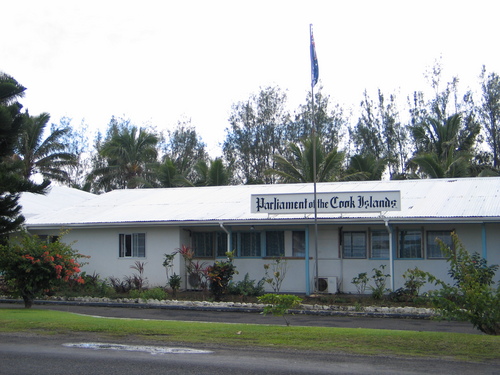
Cook Islands Cabinet will soon decide whether to approve voluntary public sector retirement at 55 and compulsory retirement at 60 – based on the idea that it will provide young Cook Islands graduates with better opportunities and entice more to stay on or
The retirement package is being refined for Cabinet to examine.
The Public Service Commission confirmed there is no mandatory retirement age in Public Service legislation or policy at present.
Nor is there an age at which a public servant can opt to take voluntary retirement. Cook Islanders can begin collecting the old age pension at 60.
Cabinet is also going to be told public sector employee level is reaching the same critical number as in 1996 and hard decisions will need to be made to rein back the current government growth rate.
A three-person team is fine-tuning its report for Cabinet after completing wide ranging public service consultations.
A leading concern is the cost of maintaining the 1900 employees in the public sector.
CI News has been told that the public sector has been growing faster than the business community can support through taxes – but daramatic cutbacks in the number of public servants isn’t being recommended to government as an option.
The review team believes repeating the events of the 1996 financial crisis must be avoided.
The resident Cook Islands population stands at around 13,000.
It has never recovered to pre-1996 levels of over 19,000.
At that time over 2000 public servants lost their jobs because of a financial crisis brought about largely by a bloated public service of 3,350 employees.
Public Service commissioner Russell Thomas says a lot of lessons have been learnt from 1996.
He says the review team –John Herrmann, Rohan Ellis and Cecilia Short, is preparing a report which will have “concrete recommendations on the best way forward”.
He wouldn’t elaborate on what those recommendations are, but says they would be “big changes” and Cabinet will be faced with deciding whether to agree with the changes.
Thomas concedes there does have to be the political will to effect change at the political level, including changes to how economic development is happening to better drive the economy.
“We are still spending more than we are making,” he says.
The review team has taken a threefold approach which fall under the banners of political reform, public service/public sector reform and economic reform.
The team believes changes in these three areas must happen simultaneously over a period of 10 years. Spreading the changes over a decade will reduce the impact on the country, as the country cannot afford to lose more people.
There’s also the feeling that for the changes to happen effectively, the current government has to remain in power. Incoming governments have shown in the past a tendency not to continue inherited programmes with any discipline or commitment.
The review team has had to contend with a general resistance to changes from heads of ministries.
A source told Cook Islands News that nearly all tend to be ‘very territorial and reluctant to share information with each other – these are not new issues but ones that affect every successive government’.
Russell Thomas says the Cook islands is a country “that’s aspiring to get to a certain standard, for example we want good roads, good harbours and airports and we want all this yesterday, there’s pressure on the MP’s and government to deliver, so we borrow”.
He adds: “I know people are saying out there that the PSC is getting too big and they would prefer the money to be spent on infrastructure and services – so maybe it is time to stop expanding and bloating the workforce.”
He confirmed that he hasn’t directly expressed these concerns to his minister, believing they are best stated by the review team, made up of private sector individuals.
Thomas says he’s aware there has to be a balancing act between public sector numbers and the ability of the business sector to fund government employees.
But what that “magic number” is – how many public sector workers there should be, is unclear, says Thomas.
The 1996 cutbacks included reducing the number of government ministries from 52 to 22. Since then, the number of government ministries and agencies has increased to about 38.
